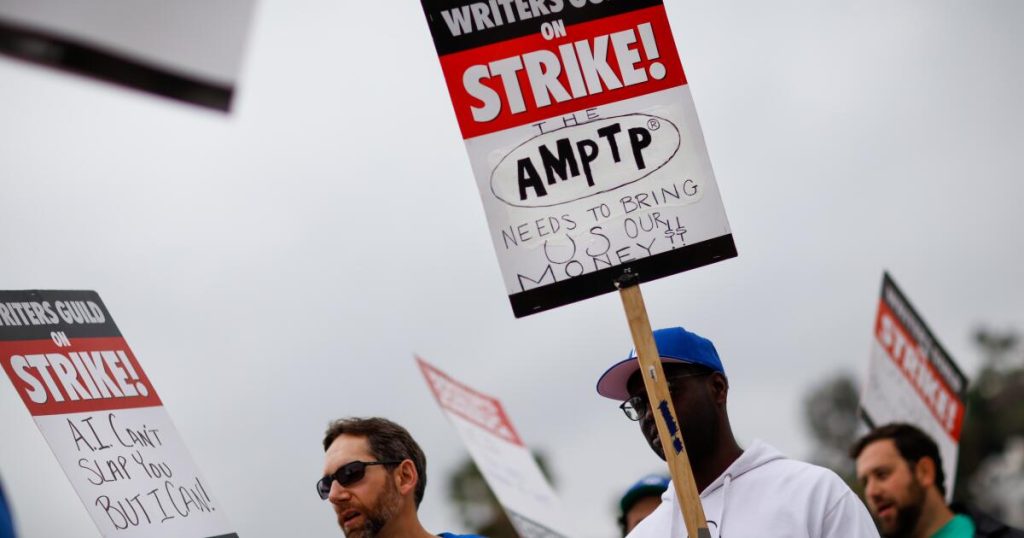The Writers Guild of America and major studios will meet for the second time this week on Thursday as the writers’ strike has stretched for more than 140 days and financial pain has rippled across the industry.
After weeks of little progress toward ending the crippling strike, the two sides met Wednesday for the first time since a Aug. 22 meeting that representatives for the writers described as a “lecture” and a browbeating session.
Wednesday’s meeting included top executives from some of the major media companies represented by the Alliance of Motion Picture and Television Producers, which handles labor negotiations for the Hollywood studios.
NBCUniversal Studio Group Chairman Donna Langley, Walt Disney Co. Chief Executive Bob Iger, Netflix co-CEO Ted Sarandos and Warner Bros. Discovery chief David Zaslav participated in the meeting, a signal of the increasing pressure on the industry to get a deal done that would return thousands of entertainment industry employees to work. CEOs are expected to also join Thursday’s session, which was set to begin around 9:30 a.m.
The WGA and AMPTP issued a brief statement following Wednesday’s meeting. They did not comment Thursday morning.
“The WGA and AMPTP met for bargaining today and will meet again tomorrow,” the groups said.
People close to the negotiations described the tone of Wednesday’s bargaining as positive, but that reports of the two sides being close to a deal are off base.
Sources said the studios and the WGA negotiators are motivated to do a deal. If the strike drags on much longer, studios’ TV and film schedules will be further disrupted, resulting in additional financial pain for the companies. Workers, including below-the-line crew, are suffering from months of going without a paycheck.
WGA members have been on strike since May 2, with their work stoppage approaching a record length for the guild. Film and television actors represented by SAG-AFTRA walked out in mid-July, resulting in a dual strike that essentially halted scripted production and hobbled studios’ ability to promote theatrical films.
As talks restarted this week, large gaps remained between the two sides. Writers are seeking minimum staffing requirements in writers rooms, protections against artificial intelligence and more transparency from streamers on viewership so they can receive more financial rewards when programs are successful.
